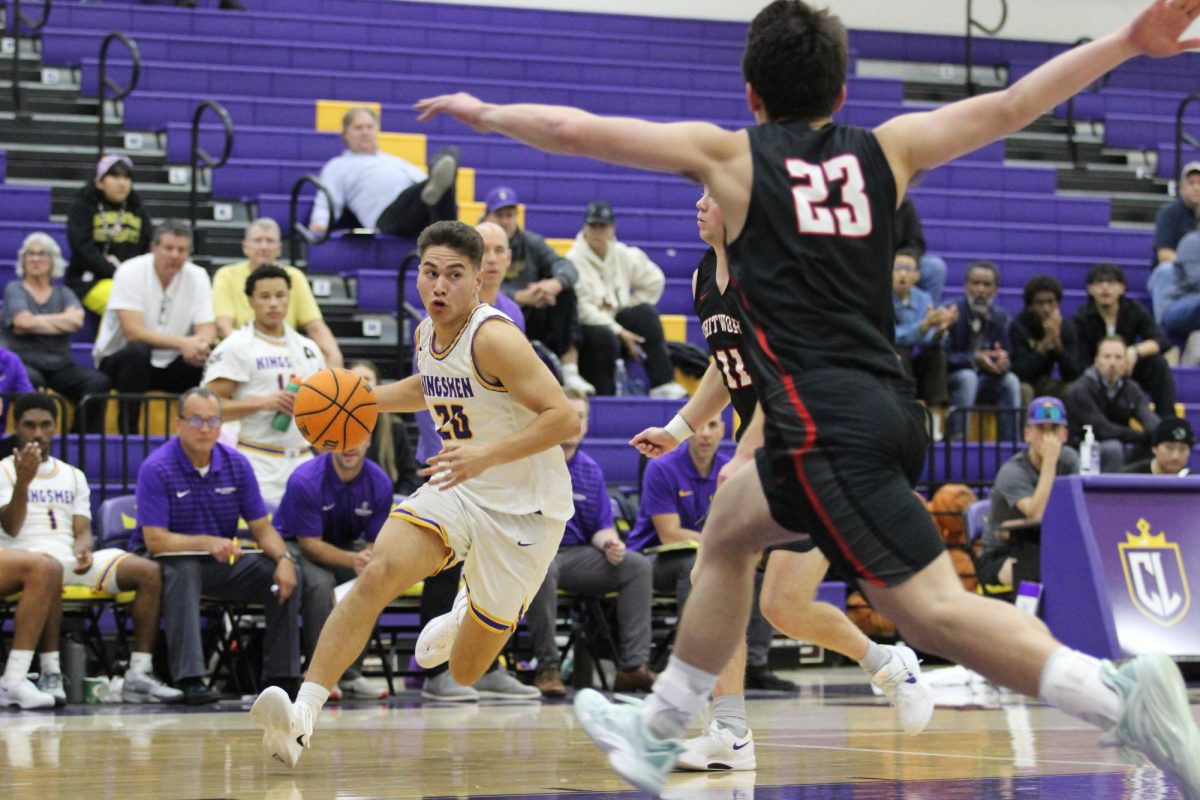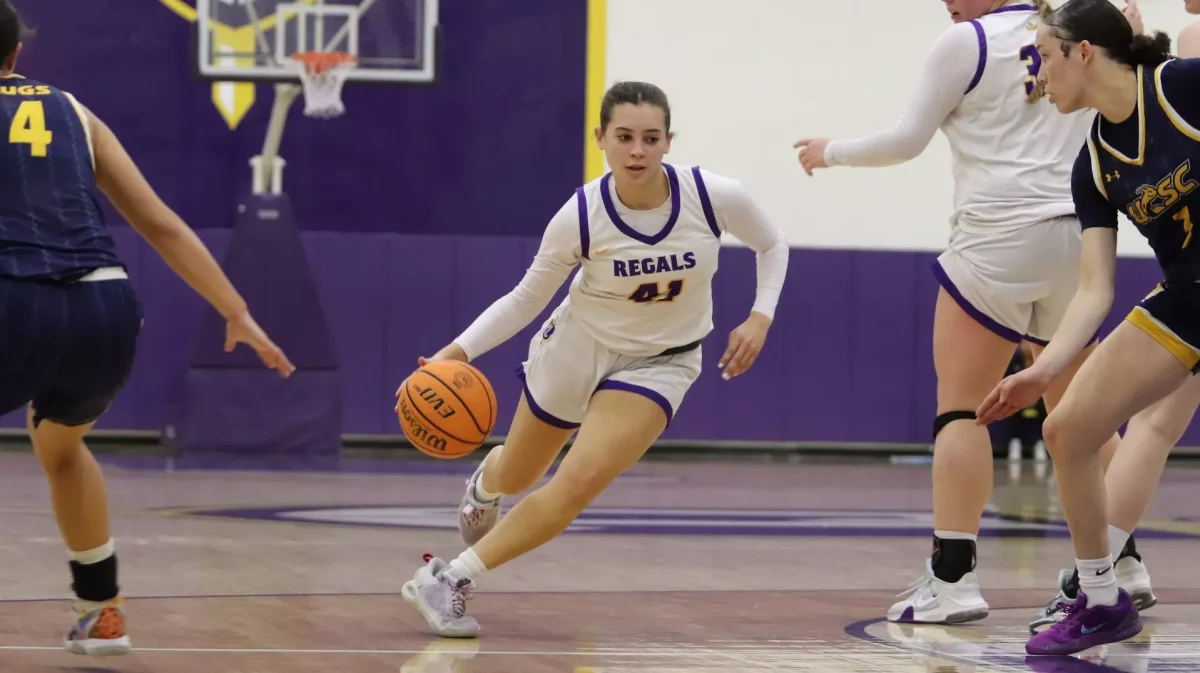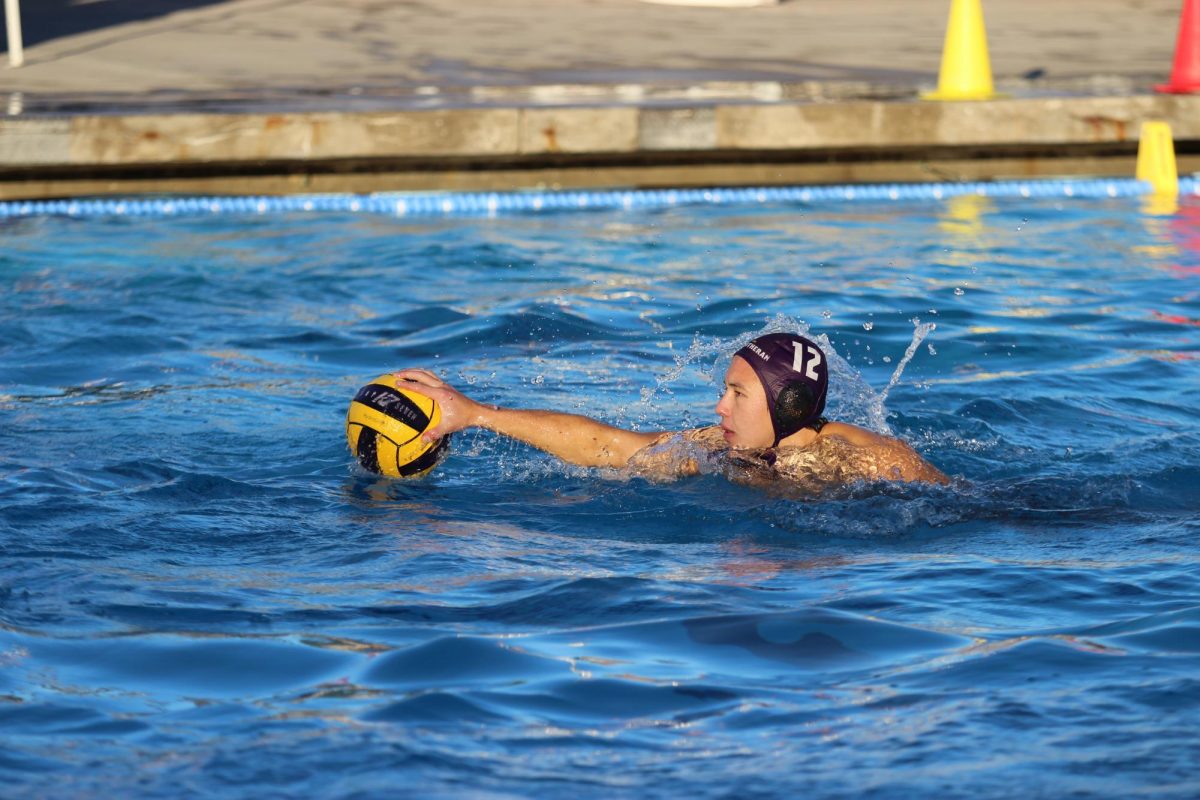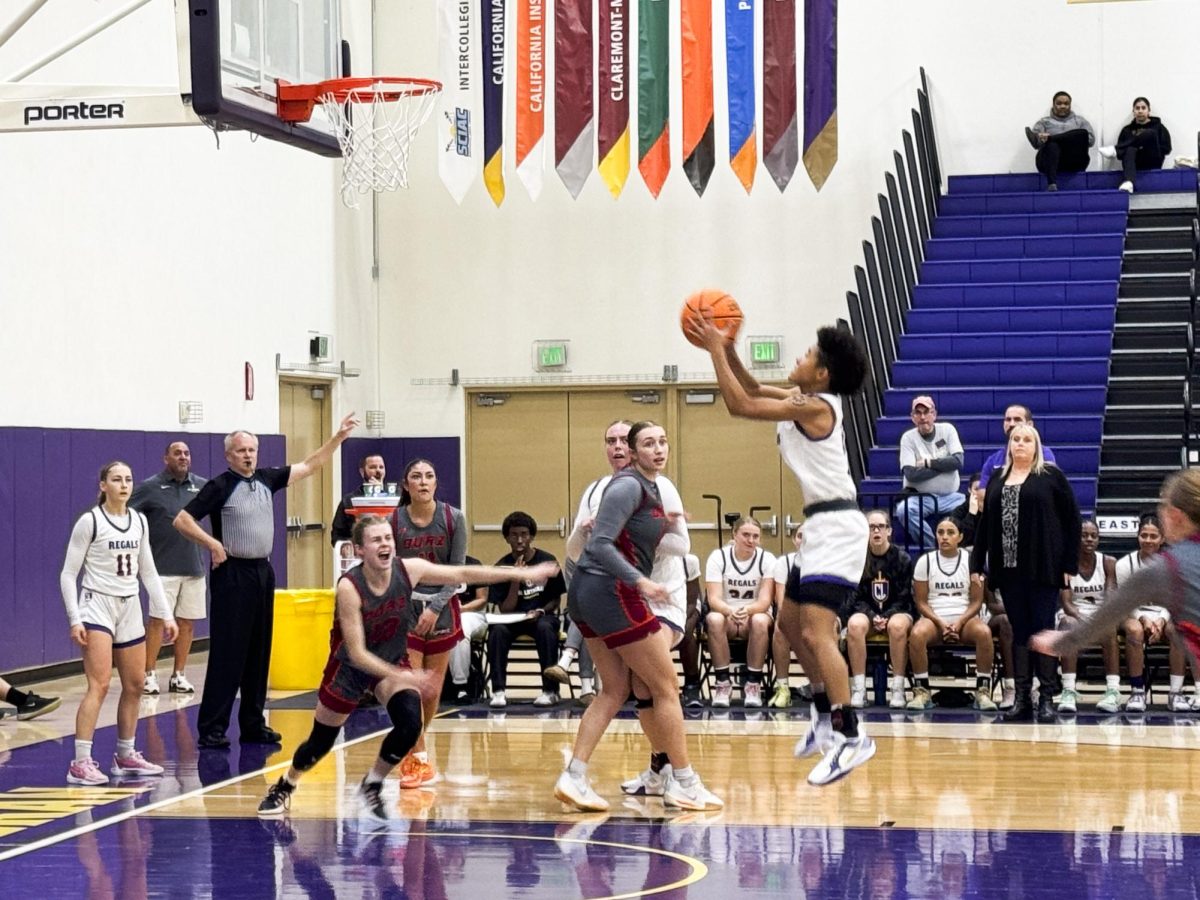At California Lutheran University, the Athletic Performance program offers athletes the opportunity to have two free nutritious snacks per day.
The Athletic Performance program offers athletes the options of chocolate milk, greek yogurt, apple sauce, string cheese, fruit snacks, chewy bars and mixed nuts.
Director of Health Wellness and Performance Kecia Davis said the idea originated three years ago in an effort to provide a unique supplemental option for Cal Lutheran’s Division III student-athletes.
“We had talked about doing supplemental nutrition because we thought that it would be a really good thing for our athletes,” Davis said.
Davis said she was excited to explore the possibility of such a program and wanted to do the best she could with the budget that they had.
“We really try and do the best we can, number one for nutrition. We want to get the best that we can within our budget… but right now I think we do a really good job with our quality and quantity of our snacks,” Davis said.
In an email interview with Head Athletic Performance Coach Brent Roling, Roling said the snacks for the program were chosen in an effort to get the best nutritional value while also considering the cost.
“The snacks were chosen to maximize nutritional value while working within budgetary constraints. I started by identifying nutritional needs for athletes (carbohydrates for fuel, protein and electrolytes for recovery etc.) Then I looked into some options for cost-effective snacks that could help fulfill these needs,” Roling said in an email interview.
Roling said the Athletic Performance program is not only committed to the physical health of athletes but also their success in life.
According to the Athletic Performance website, “Experience has shown that well-informed student-athletes are more likely to train with increased vigor and intelligence which, in turn, tends to promote accountability, discipline, team unity, and competition in all aspects of life.”
Davis said when members of the Athletic Performance staff were exploring the possibility of the program, she looked into the monetary side while Roling explored the nutritional side.
“Brent looked at the nutritional aspect of everything, and I looked at the money aspect of everything, and we were able to do it,” Davis said.
Roling said that he tested the samples with student-athletes in his summer classes, and used their feedback to make the best decision possible.
“I bought samples of a bunch of different options at Costco and had the students/athletes in our Summer class try them and provide feedback. I took the highest rated, most nutrient-dense, and most cost-effective options and started with those!” Roling said in an email interview.
There is no information online regarding official nutrition programs within any of the other Southern California Intercollegiate Athletic Conference programs.
Assistant Athletics Director of Health & Wellness at the University of La Verne Joanna Engel-Finer said there is no supplemental nutrition program offered to student-athletes.
Athletic Trainer at Claremont-Mudd-Scripps Jesse Purcell and Director of Athletic Training & Sports Medicine at Chapman University Pamela Gibbons also said that their schools do not offer supplemental nutrition to student-athletes.
Davis said she can guarantee that other schools are not doing as much as Cal Lutheran and that she is proud of the unique Division III program that Cal Lutheran has.
“I think it’s a great thing that makes us unique. I think it sets us apart. It definitely sets us apart from SCIAC, and I think it would set us apart from a lot of D3 schools,” Davis said.
She said it is common for Division I schools to have large nutritional programs for their student-athletes, and it is very uncommon for Division III schools to have any program at all.
“You go D1 and they have their own smoothie bar, and they have their own store, and they go wherever they want. Some schools, you know I was at LSU, and their football team has their own cafeteria where they can eat 24 hours a day. So for us to have this at the D3 level, with our 600 athletes, I think is phenomenal,” Davis said.
This program and the staff are aspects of the project that Davis said she is extremely proud of.
“We’re proud of it, and I think it makes us unique. Our goal at Cal Lutheran is to support our athletes as best we can. I think we have great staff, I think our sports medicine staff is phenomenal. I think our performance staff is phenomenal,” Davis said. “I am proud to be in charge of it, and I’m proud that this is something we have. Now we just need to keep the funding.”
Both Davis and Roling said that the biggest challenge this program faces is funding.
“With everything at a Division III level, you’re limited with budget… The major hurdle is just being able to fund it,” Davis said.
Roling said he has been fortunate enough to have the support of the administration to keep the program going and that they are looking to get creative with fundraising and find donors to ensure the program thrives and improves.
Currently, there is no money set aside for the supplemental nutrition program and Davis said most of the funding if from trying to find money within the athletic budget.
“It means everything. I have two degrees in nutrition and I know firsthand that it can be very difficult to get enough nutrients to support your performance goals as a college athlete,” Roling said in an email interview. “This program was started because even something as simple as a chocolate milk can help fill some of the gaps on a daily basis. To have the support from administration to be able to start and maintain this program is really special and I think it truly sets us apart in our conference.”
Although it is only the third year that the program has been running, Davis and Roling said they have high hopes for its development.
“I would love to be able to take over the snack bar and have a smoothie bar… and to have some fresh stuff,” Davis said.
Roling had similar plans for the future of the program and said if they received the proper funding to not only continue but expand.
“Our goals are to continue to grow and expand the program. As we get more funding, we can potentially start to offer things like protein shakes, smoothies, and even more nutrient-dense options for our student-athletes!” Roling said in an email interview.
Regan Laubscher a senior outfielder on the Regals softball team and Forrest Fitness Center front desk worker, said she is also proud of her school and staff for implementing such a program.
“Us being the only SCIAC school to have this says a lot about the support staff that we have here. It’s even deeper than that. It shows how much they care about us as athletes; not just as athletes, but as people too,” Laubscher said.
Laubscher also said that she values and appreciates the supplemental nutrition program.
“I think this nutrition program is so valuable because a lot of the time we’re really busy as athletes. We’re going straight from our lifts to class, and every time I lift, I’m so hungry,” Laubscher said.
Davis said she wants to support the student-athletes in every way she can and does so in all of her roles.
“My job is to support you guys in everything I can, from athletic training, sports medicine, performance… and I think this is a big part of that,” Davis said. “I think if you would interview all 600 athletes that use it, everybody would say it’s awesome.”
This article was updated at 9:16 a.m. on April 27 to add the photo in.







